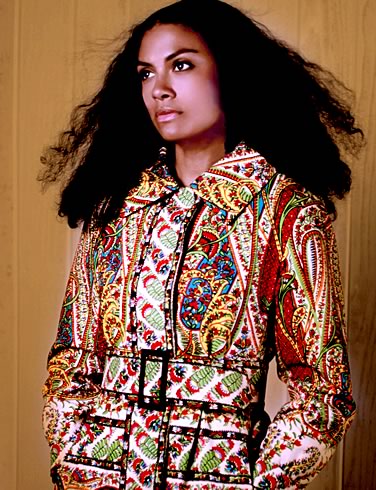
Interview by Nu-Soul Magazine.
Nu-Soul: Cool so, what was your inspiration or the group’s inspiration when you were recording the album? I mean it’s timeless; it still stands to this day.
AL: Well, I mean, inspiration was being young and green and having years and years of songs written before then, and never being in the studio before. It’s a live combination of inexperience, excitement, innocence, and a lot to say, you know being years and years of writing stuff, and watching things, and I grew up at the time, that the Native Tongues was really popular, that really influenced me. I think I grew up in the hey day of Hip Hop, the best hip-hop, the late 80’s, early 90’s, so I had a lot of stuff to inspire musically that was going on. And, it was inspirational, for me, as a songwriter, to be able to have, all my own material that I was writing, as opposed to, being in a group where some things are written for you.
AL: And being produced as a vocalist. I didn’t have that. I was producing my own vocals. And I was arranging everything, and doing all my own backgrounds. That in itself was inspirational because it let me carve out my own niche. You know?
Nu-Soul: One thing that really made an impression on me, in 1995, while listening to the Groove Theory album was the substance in your writing! Were you ever asked to tone that down as a member of Groove Theory?
AL: Yes, (laughs) many times. And I was asked to tone it down as a solo artist, which is one of the reasons why I was really glad to leave the major label where I was signed because, they wanted, they definitely wanted me to do stuff that wasn’t necessarily so, maybe such “thinking music” or something. Like I wanted to protest at different times, but yeah, I think it just comes with the territory, I remember thinking “they got a stereotype of what a black female’s supposed to do, or a female’s supposed to do, or a black artist in general’s supposed to do”. So when you, when you have something else to say or you have another way of presenting yourself; there’s sometimes some friction and it’s just about persevering, how much you wanna be, you know, like the statement says, if you wanna do you. It’s about how bad you wanna do you, so, it was cool, I mean it was nice.
I had already, I had met my husband, he was co-writing with me at that time, when, in Groove Theory we had already gotten married by the time Groove Theory came out, and, we were kinda like a team, you know, the two of us. He understood where I was coming from, and where I felt like everybody else was questioning my theories of, you know, how to write, how can I present myself, how I was gonna vocalize…he was really supportive of me finding myself and nurturing myself as this like growing artist. I was young; I signed the demo when I was 19. So, saying all that to say, I think all that stuff is necessary to make you into an artist. You know, being questioned, you’re gonna be questioned once you put yourself out into the public



